By ARC Staff (translation Marion Picot)
At the end of October, Isara Lyon, one of the oldest agronomics school in France, welcomed the 1st Forum of Agroecology Europe. More than 350 people from 28 countries, including students, researchers, farmers, enterprises, activists, but also institutional representatives, gathered together to discuss the future of agroecology in Europe. Answering many challenges for the future of agroecology, this 1st Forum set a solid basis for the development of a European scaled movement.
Since 2014, agroecology has been on top of the agenda in the United Nations, but also in France where the former Ministre of Agriculture Stéphane Le Foll contributed to promoting it. However, the diversity of social movements, research and practices around it make it difficult both for citizens and decision-makers to sense of what is at stake. The debates of Lyon managed to clarify several definition difficulties, differentiating agroecology from a vast range of agricultural practices including organic agriculture, permaculture, agroforestry, high nature value farming or sustainable intensification.
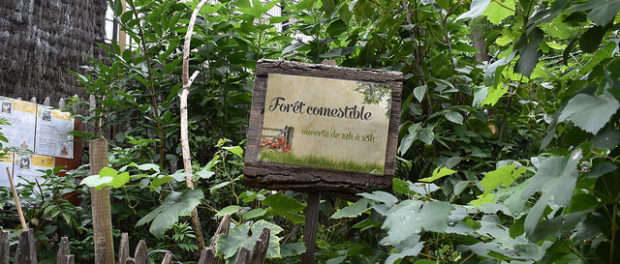
Actors also emphasised the importance of agroecology in the future of farming and nutrition. As for FAO representative Rémi Cluset, not only is agroecology a necessary component to reach Sustainable Development Goals, but it also ensures food safety at a time when malnutrition and undernutrition impact more and more people. The FAO remains particularly proactive, as its contribution “Scaling Up Agroecology” has recently shown. The initiative, which will be the object of a 2nd International Symposium in April 2018, aims at pursuing efforts in research and capitalisation of knowledge at regional scales.
Read: FAO’s Concept note – Scaling up Agroecology to Achieve the SDGs (D/L PDF)
But these efforts cannot just rely on technical, including digital, solutions. It was emphasised that we have to push forward farmers’ autonomy and development, by accompanying them on the long transition to agroecology. Michel Pimbert, from the University of Coventry, underlined how crucial and beneficial agronomics research and enhancement is, albeit with a top down focus. For him, agroecology is a powerful tool to experiment with new democratic and participative methods in the field. He also called for the creation and implementation of a research agenda reuniting farmers movements and scientists.
Jan Douwe van der Ploeg, a sociologist who taught in Wageningen, asked what is agroecology in the European context? He could just find a few hidden examples, citing environmental cooperatives in the Netherlands and the Sustainable Agriculture Network in West of France which has proved in the last fifteen years the economic and social positive effects of autonomous grazing systems in dairy production.
Read #AfterCAP | Towards an integrated rural development policy 2.0 (Jan Douwe van der Ploeg)
However, Europe is still quite different from Latin American, including Brazilian experiences. Paulo Petersen from Agricultural Familiar e Agroecologia (AS-PTA) explained why, by underlining historical and societal dimensions at the basis of agroecology in Brazil. There, agroecology is the result of labour unions’ campaigning, social emancipation and citizen resistance. Many farms in South America have developed agroecology as a resistance practice to guarantee their food safety. Comparing both geographical entities, M. van der Ploeg affirmed:
« Brazil has a strong social movement; the EU has not. Conflicts are very hard with Brasilian Government while it is nuanced in the EU. You have to create openings in the system itself, using the institutional opportunities. In the EU, there is a specific history made by organic leaders, but capillarity has not performed yet. Agroecology in Europe will be different from agroecology in Brazil because Europe is not Brazil.”
Whichever lever is needed in Europe, the 1st Forum of Agroecology Europe seemed to set a favourable environment to continue developing a movement of transformation for European agriculture. As Stéphane Bellon, President of Agroecology Europe said:
“The 1st European Forum revealed a strong dynamics and offered a unique learning opportunity to participants, thanks to their diversity and the many workshops or activities proposed. Together with the general assembly of the association, this forum provided many insights for the newly elected board and all actors interested in the international development of agroecology.
Further Agroecology resources
For membership of Agroecology Europe contact: Alain Peeters (Secretary Agroecology Europe): alain.peeters@agroecology-europe.org
A jointly elaborated summary from participants is available here on the Friends of the Earth Europe Website
ARC2020 produced, with Friends of the Earth Europe and IFOAM EU, a brochure called Transitioning Towards Agroecology. This is available in six languages. At the link below, you can also find our accompanying video series.
Innovative brochure ‘Transitioning Towards Agroecology’ launched
http://www.agroecology-europe.org/forum-feedback/
Click on the button to load the content from www.agroecology-europe.org.

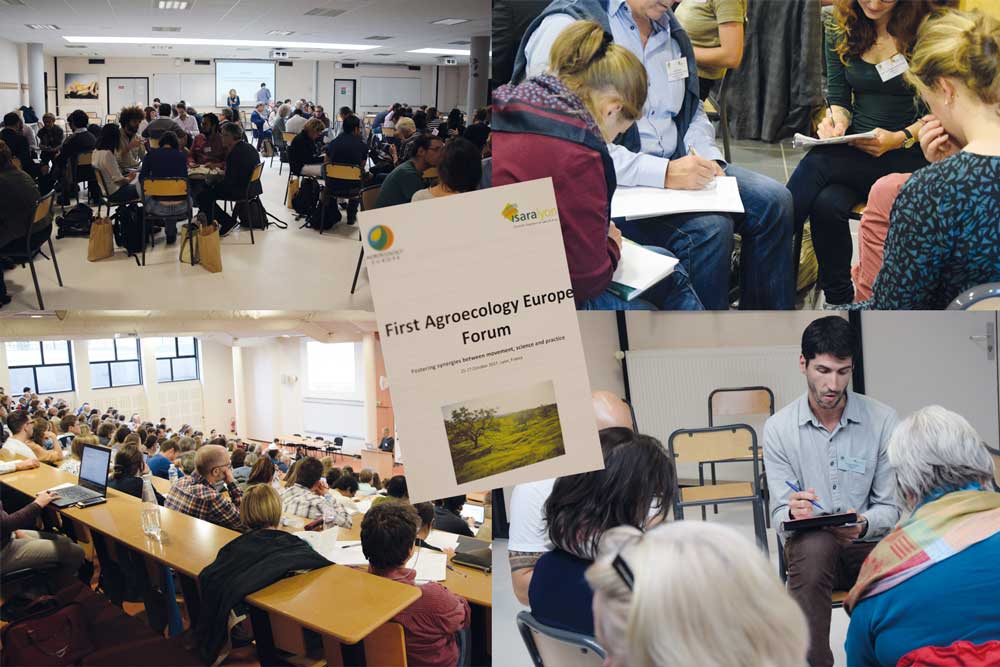


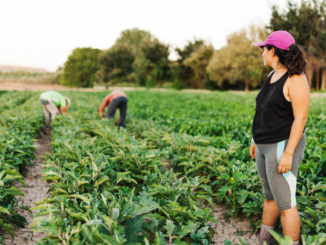
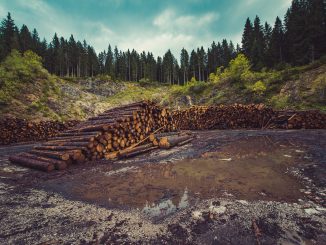
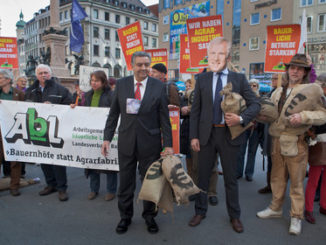
2 Trackbacks / Pingbacks
Comments are closed.